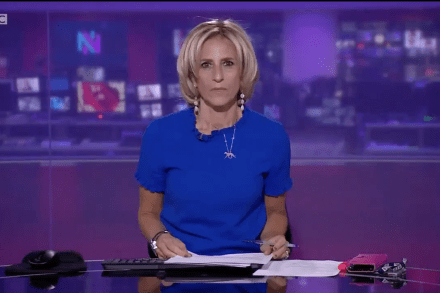Newsnight’s dodgy coronavirus data
Last week, the BBC show Newsnight found itself in hot water, after its presenter Emily Maitlis was rebuked by the BBC for not showing due impartiality, when she opened the show with a broadside against Dominic Cummings and Boris Johnson. You would think, therefore, that the programme would be on its best behaviour at the moment, and would make sure that it was reporting the facts correctly. Apparently not though. Yesterday evening, the programme included a segment in which it suggested that the UK’s daily death toll from Covid-19 was higher than every other country in the EU combined. The programme even displayed a graph prominently, to highlight the UK’s





















